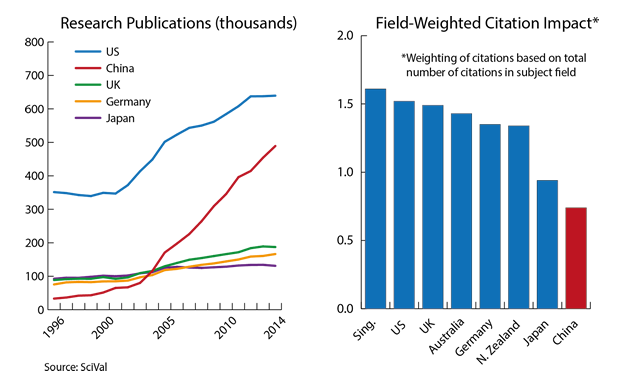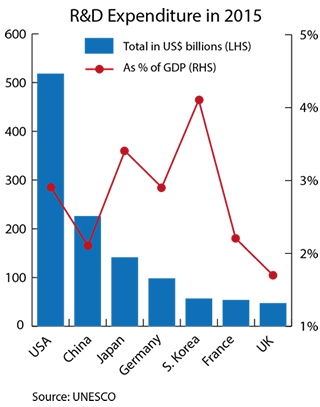You are here
Home ›Searching for new frontiers in UK-China research collaboration
by Matt Durnin
03/11/2016
Higher Education Institutions

Earlier this week we hosted a Russell Group delegation in Shanghai. Given the group’s prominence in research and innovation, the conversation inevitably turned to how we can work to deepen collaboration with Chinese partners in these areas. China of course is working in collaboration with a lot of countries, but there are several reasons why UK-China research partnerships make for an especially good pairing.
China’s goals for improving its research stature match well with the UK’s strengths. Overall output of research publications in China has grown sharply over the past decade, yet the impact of these publications (in terms of citations) trails those of China's peers. The UK, meanwhile, is a world leader in terms of research impact, only narrowly trailing Singapore and the US in terms of field-weighted citations.

But the UK-China relationship is no longer a one-way transaction through which China simply hopes to extract expertise from abroad, and the benefits of engagement are rapidly shifting in favour of its foreign partners. China’s R&D expenditure reached US$226 billion in 2015, nearly five times what the UK spends. This is translating into world-class research facilities and deep pockets for funding research.

The emerging opportunities for UK institutions are two-fold: First, Chinese universities have a strong emphasis and increasingly good track record on applied research, with links to research parks and innovation incubators that can help bring ideas from laboratory to market.
Second, while China has lagged behind in basic research – frontier scientific discovery with little or no near-term commercial potential – the government has recently made this a priority area for improvement. In June this year, the National Natural Science Foundation of China (NSFC) announced that its own investment in basic research will equal that of big-spending countries by 2020. With the potential that EU research funding may dry up post Brexit, partnerships with Chinese institutions may play an increasingly important to keeping the lights on for UK research projects working at the scientific frontier.
As China becomes increasingly productive and confident in its research capabilities, we should also expect the models of cooperation to change. Looking ahead, a strategy of broad cooperation through a consortium of UK universities and enterprises working with Chinese counterparts, each leveraging their individual strengths, may be the way forward to fully capitalising on opportunities with China.
Theme:
Latest Blog Posts
04/03/2024




Add new comment
Please note that comments by non-members are moderated. They do not appear on the site until they have been approved. Comments by registered members appear here immediately. Your email address will not be published. All fields are required.